Man, God, and Higher Life
...Human power is extremely limited, and is infinitely surpassed by the power of external causes; we have not, therefore, an absolute power of shaping to our use those things which are without us. Nevertheless, we shall bear with an equal mind all that happens to us in contravention to the claims of our own advantage, so long as we are conscious, that we have done our duty, and that the power which we possess is not sufficient to enable us to protect ourselves completely; remembering that we are a part of universal nature, and that we follow her order. If we have a clear and distinct understanding of this, that part of our nature which is defined by intelligence, in other words the better part of ourselves, will assuredly acquiesce in what befalls us, and in such acquiescence will endeavour to persist. For, in so far as we are intelligent beings, we cannot desire anything save that which is necessary, nor yield absolute acquiescence to anything, save to that which is true: wherefore, in so far as we have a right understanding of these things, the endeavour of the better part of ourselves is in harmony with the order of nature as a whole.
(Spinoza, Ethics, Part IV, Appendix)
Spinoza has well argued against the popular conception of freedom, according to which we choose always among open possibilities. The very idea of possibility stems from ignorance:
I call... individual things possible in so far as, while we regard the causes by which they must be produced, we do not know whether they are determined to produce them. (Ethics, Part 4, Def. 4)
The more we know of the causality of our actions, the less roomwe have for ideas of possibility and contingency. However, the knowledge of causality does not cancel the belief in freedom, but vindicates it. It s the illusory idea of freedom, arising from imagination, that creates our bondage, for we believe in the contingency o things only in so far as our mind is passive. The more wesee things as necessary (through the medium of adequate ideas), the more we increase our power over them, and so the more we are free:
PROP. 6. The mind has greater power over the emotions and is less subject thereto, in so far as it understands all things as necessary.
Proof.-The mind understands all things to be necessary (I.xxix.) and to be determined to existence and operation by an infinite chain of causes; therefore (by the foregoing Proposition), it thus far brings it about, that it is less subject to the emotions arising therefrom, and (III. xlviii.) feels less emotion towards the things themselves. Q.E.D.
Note.-The more this knowledge, that things are necessary, is applied to particular things, which we conceive more distinctly and vividly, the greater is the power of the mind over the emotions, as experience also testifies. For we see, that the pain arising from the loss of any good is mitigated, as soon as the man who has lost it perceives, that it could not by any means have been preserved. So also we see that no one pities an infant, because it cannot speak, walk, or reason, or lastly, because it passes so many years, as it were, in unconsciousness.
Whereas, if most people were born full-grown and only one here and there as an infant, everyone would pity the infants; because infancy would not then be looked on as a state natural and necessary, but as a fault or delinquency in Nature; and we may note several other instances of the same sort.
Therefore, the free man is conscious of the necessities that compel him.Such a person understand himslef and his emotions, and alo loves God:
PROP. 15. He who clearly and distinctly understands himself and his emotions loves God, and so much the more in proportion as he more understands himself and his emotions.
Proof.-He who clearly and distinctly understands himself and his emotions feels pleasure (III. liii.), and this pleasure is (by the last Prop.) accompanied by the idea of God; therefore (Def. of the Emotions, vi.) such an one loves God, and (for the same reason) so much the more in proportion as he more understands himself and his emotions. Q.E.D.
This love, which stems necessarily from the pursuit of knowledge, is an intellectual love (amor intellectualis Dei). That is to say, the mind is wholly active in loving God, and hence rejoices constantly, but without passion, in the object of its contemplation. God himself can experience neither passion, nor joy nor sorrow:
PROP. 17. God is without passions, neither is he affected by any emotion of pleasure or pain....and is therefore free from emotion, as we normally understand it.He neither loves the good nor hates the wicked; indeed he loves and hates no one:
Proof.-All ideas, in so far as they are referred to God, are true(II.xxxii.), that is (II. Def. iv.) adequate; and therefore (by the general Def. of the Emotions) God is without passions. Again, God cannot pass either to a greater or to a lesser perfection (I. xx. Coroll. ii.); therefore (by Def. of the Emotions, ii. iii.) he is not affected by any emotion of pleasure or pain.
Corollary.-Strictly speaking, God does not love or hate anyone. For God (by the foregoing Prop.) is not affected by any emotion of pleasure or pain, consequently (Def. of the Emotions, vi. vii.) he does not love or hate anyone.Hence...
PROP. 19. He, who loves God, cannot endeavour that God should love him in return.
Proof.-For, if a man should so endeavour, he would desire (V.xvii. Coroll.) that God, whom he loves, should not be God, and consequently he would desire to feel pain (III. xix.); which is absurd (III. xxviii.). Therefore, he who loves God, &c. Q.E.D.
Love towards God is wholly disinterested, and
PROP. 20. This love towards God cannot be stained by the emotion of envy or jealousy: contrariwise, it is the more fostered, in proportion as we conceive a greater number of men to be joined to God by the same bond of love.
Proof.-This love towards God is the highest good which we can seek for under the guidance of reason (IV. xxviii.), it is common to all men (IV. xxxvi.), and we desire that all should rejoice therein (IV. xxxvii.); therefore (Def. of the Emotions, xxiii.), it cannot be stained by the emotion envy, nor by the emotion of
jealousy (V. xviii. see definition of Jealousy, III. xxxv. note); but, contrariwise, it must needs be the more fostered, in proportion as we conceive a greater number of men to rejoice therein. Q.E.D.
Indeed, man's intellectual love of God 'is the very love of God with which God loves himself' (Part 5, Porposition 36). In loving God we participate more fully in the divine intellect, and in the impersonal, universal love that reigns there, for although God cannot reciprocate our love, he nevertheless loves men, in so far as he loves himself in and through men. This eternal love constitutes our 'salvation, blessedness or liberty'.
During the course of his discussion of man's blessedness, Spinoza gives a singular proof of our immortality - or, rather, of the proposition that 'the human mind cannot be absolutely destroyed with the human body, but something of it remains which is eternal' (Part 5, Proposition 23). The obscure proof of this depends upon Spinoza's view that, through adequate ideas, the mind comes to see the world sub specie aeternitatis, and therefore without reference to time. The essence of the mind consists in the capacity for adequate ideas (by "adequate idea" Spinoza understands 'an idea which, in so far as it is considered in itself, without relation to an object, has all the properties, or intrinsic mark of a true idea' and he adds by way of explanation, 'I say intrinsic in order that I may exclude what is extrinsic, i.e. the agreement of the idea with its object'). (Essence = conatus = activity = adequacy.) The instantiation of this essence in time (in the world of duration) cannot be explained by adequate ideas, since they contain no temporal reference. Such ideas are given 'duration' only through their attachment to the mortal body, and not intrinsically:
During the course of his discussion of man's blessedness, Spinoza gives a singular proof of our immortality - or, rather, of the proposition that 'the human mind cannot be absolutely destroyed with the human body, but something of it remains which is eternal' (Part 5, Proposition 23). The obscure proof of this depends upon Spinoza's view that, through adequate ideas, the mind comes to see the world sub specie aeternitatis, and therefore without reference to time. The essence of the mind consists in the capacity for adequate ideas (by "adequate idea" Spinoza understands 'an idea which, in so far as it is considered in itself, without relation to an object, has all the properties, or intrinsic mark of a true idea' and he adds by way of explanation, 'I say intrinsic in order that I may exclude what is extrinsic, i.e. the agreement of the idea with its object'). (Essence = conatus = activity = adequacy.) The instantiation of this essence in time (in the world of duration) cannot be explained by adequate ideas, since they contain no temporal reference. Such ideas are given 'duration' only through their attachment to the mortal body, and not intrinsically:
Thus our mind can only be said to endure, and its existence can only be defined by a fixed time, in so far as it involves the actual existence of the body. Thus far only has it the power of determining the existence of things by time, and conceiving them under the category of duration.
(Part 5, Proposition 23, scholium)
We should not think of eternity as endless duration - since that is to confuse eternity with time. The eternity that we achieve through our thinking is like an escape from time to another dimension. The eternal part of us does not endure after death, but only because it does not endure in life. It comprises a vision, a point of view, a perspective outside time and change, in which we are one with God and redeemed by our knowledge of him. This blessed state is 'not the reward of virtue, but virtue itself; nor do we enjoy it because we restrain our lusts; on the contrary, bacause we enjoy it, we are able to restrain them' (Part 5, Proposition 42).
That - the last proposition of the Ethics - is Spinoza's answer to the religions of the ignorant, whose view of the after-life, as reward or punishment fro behaviour here below, is an opinion 'so absurd as to be hardly worth mentioning' (Part 5, Proposition 41). Nevertheless the truth about our relation to God is both difficult and forbidding, and it is not surprising if ignorant people are unable to discover it. Hence, just as virtue is its own reward, so ignorance is its own punishment:
That - the last proposition of the Ethics - is Spinoza's answer to the religions of the ignorant, whose view of the after-life, as reward or punishment fro behaviour here below, is an opinion 'so absurd as to be hardly worth mentioning' (Part 5, Proposition 41). Nevertheless the truth about our relation to God is both difficult and forbidding, and it is not surprising if ignorant people are unable to discover it. Hence, just as virtue is its own reward, so ignorance is its own punishment:
For the ignorant man is not only distracted in various ways by external causes without ever gaining the true acquiescence of his spirit, but moreover lives, as it were unwitting of himself, and of God, and of things, and as soon as he ceases to suffer, ceases also to be.
Whereas the wise man, in so far as he is regarded as such, is scarcely at all disturbed in spirit, but, being conscious of himself, and of God, and of things, by a certain eternal necessity, never ceases to be, but always possesses true acquiescence of his spirit.
If the way which I have pointed out as leading to this result seems exceedingly hard, it may nevertheless be discovered. Needs must it be hard, since it is so seldom found. How would it be possible, if salvation were ready to our hand, and could without great labour be found, that it should be by almost all men neglected? But all things excellent are as difficult as they are rare.
With those famous words Spinoza concludes his argument, bequeathing to posterity what is perhaps the most enigmatic book of philosophy that has ever been written... after Kabbalah...
Spinoza is right in thinking that we must strive to see the world under the aspect of eternity. There is no other release from the chain of causality than the kind of thinking that looks beyond causality, to the meaning and pattern of the whole. And when we discover this pattern, things change for us, as a landscape changes when the painter elicits its form, or sounds change when they are combined together as music. A kind of personality shines then through the scheme of things. We come face to face with God, in the very fact of creation.
If religion is to be reconciled with science, it can be only in Spinoza's way. Spinoza is right in believing that God's majesty is diminished by the idea that things might have been otherwise. The belief in miracles does no credit to God, for what need has God to intervene in events that he originates? The laws of the Universe must be universally binding if we are to understand them, and the intellegibility of the Universe is the premise from which all science and all religion begin.
Spinoza believes that truth is our only standard, and that to live by any other is to surrender to circumstance. There is implanted in every rational being the capacity to distinguish the true from the false, to weigh evidence, and to confront our world without illusions. In this capacity our dignity resides, and in committing ourselves to truth we stand back from our immediate concerns and see the world as it should be seen - under the aspect of eternity. Truth cannot be fashionable, even if it so often offends. To take truth as our guide is to ponder time and all its minions with a sceptical disfavour.
Our age is more dominated by scientific theory than was Spinoza's; but only a fond illusion persuades us that it is more guided by the truth. We have seen superstition triumph on a scale that would have startled Spinoza, and which has been possible only because superstition has cloaked itself in the mantle of science. If the heresies of our day are, like Nazism and communism, the declared enemies of religion, this merely confirms, for the student of Spinoza, their superstitious character, and confirms, too, Spinoza's insight that scientific objectivity and divine worship are the forms of intellectual freedom. Spinoza, like Pascal, saw that the new science must inevitably 'disenchant' the world. By following truth as our standard, we chase from their ancient abodes the miraculous, the sacred and the saintly. The danger, however, is not that we follow this standard - for we have no other - but that we follow it only so far as to lose our faith, and not so far as to regain it. We rid the world of useful superstitions, without seeing it as a whole. Oppressed by ts meaninglessness, we succumb then to new and less useful illusions - superstitions born of disenchantment, which are all the more dangerous for taking man, rather than God, as their object.
The remedy, Spinoza reminds us, is not to retreat into the pre-scientific world-view, but to go further along the path of disenchantment; losing both the old superstitions and the new, we discover at last a meaning in truth itself. By the very thinking that disenchants the world we come to a new enchantment, recognizing God in everything, and loving his works in the very act of knowing them.
If religion is to be reconciled with science, it can be only in Spinoza's way. Spinoza is right in believing that God's majesty is diminished by the idea that things might have been otherwise. The belief in miracles does no credit to God, for what need has God to intervene in events that he originates? The laws of the Universe must be universally binding if we are to understand them, and the intellegibility of the Universe is the premise from which all science and all religion begin.
Spinoza believes that truth is our only standard, and that to live by any other is to surrender to circumstance. There is implanted in every rational being the capacity to distinguish the true from the false, to weigh evidence, and to confront our world without illusions. In this capacity our dignity resides, and in committing ourselves to truth we stand back from our immediate concerns and see the world as it should be seen - under the aspect of eternity. Truth cannot be fashionable, even if it so often offends. To take truth as our guide is to ponder time and all its minions with a sceptical disfavour.
Our age is more dominated by scientific theory than was Spinoza's; but only a fond illusion persuades us that it is more guided by the truth. We have seen superstition triumph on a scale that would have startled Spinoza, and which has been possible only because superstition has cloaked itself in the mantle of science. If the heresies of our day are, like Nazism and communism, the declared enemies of religion, this merely confirms, for the student of Spinoza, their superstitious character, and confirms, too, Spinoza's insight that scientific objectivity and divine worship are the forms of intellectual freedom. Spinoza, like Pascal, saw that the new science must inevitably 'disenchant' the world. By following truth as our standard, we chase from their ancient abodes the miraculous, the sacred and the saintly. The danger, however, is not that we follow this standard - for we have no other - but that we follow it only so far as to lose our faith, and not so far as to regain it. We rid the world of useful superstitions, without seeing it as a whole. Oppressed by ts meaninglessness, we succumb then to new and less useful illusions - superstitions born of disenchantment, which are all the more dangerous for taking man, rather than God, as their object.
The remedy, Spinoza reminds us, is not to retreat into the pre-scientific world-view, but to go further along the path of disenchantment; losing both the old superstitions and the new, we discover at last a meaning in truth itself. By the very thinking that disenchants the world we come to a new enchantment, recognizing God in everything, and loving his works in the very act of knowing them.
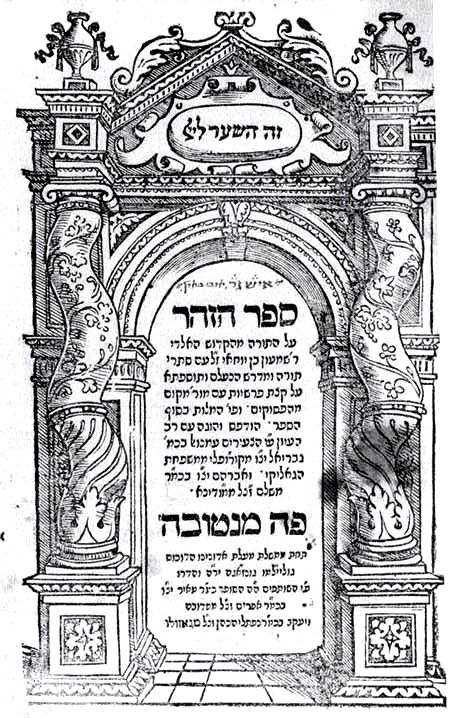
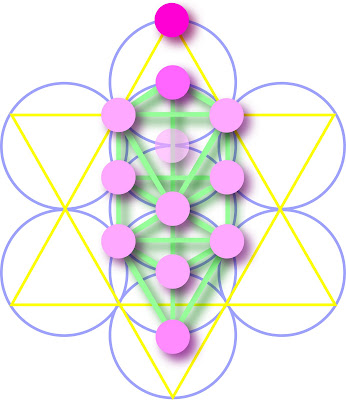
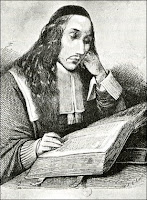


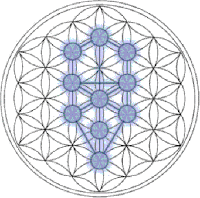

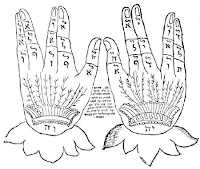

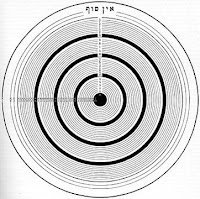
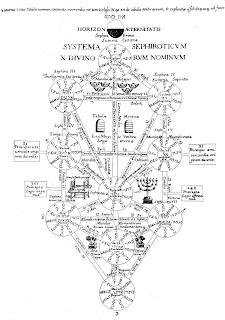
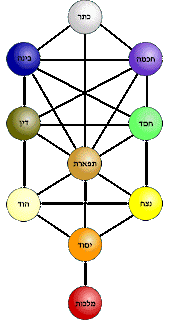
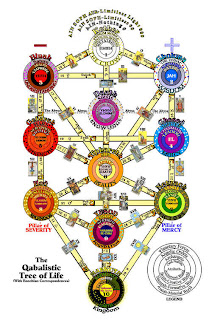


0 Comments:
Post a Comment
Subscribe to Post Comments [Atom]
<< Home